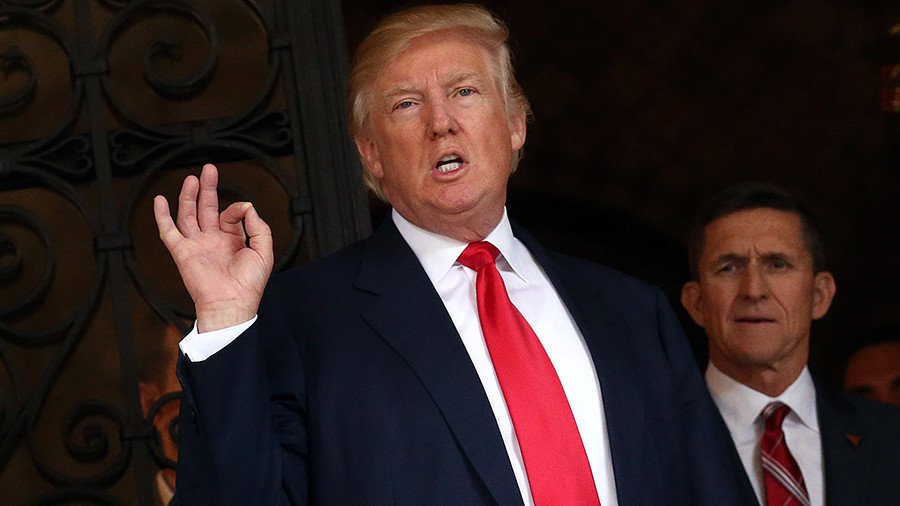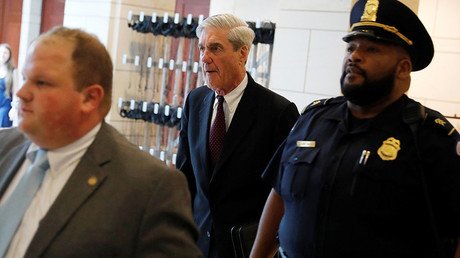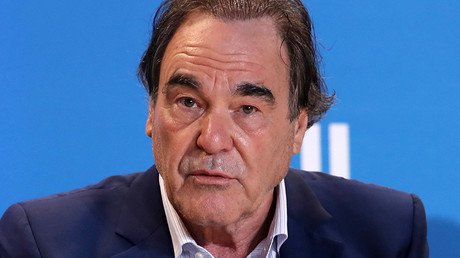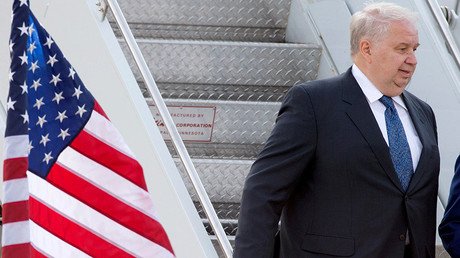Following ‘unmasking’ of Michael Flynn, US to tighten the screws on spies

Amid persistent claims the Obama administration eavesdropped on members of Trump’s transition team and leaked General Michael Flynn’s name to the media, tough new restrictions are on the horizon.
The Director of National Intelligence Dan Coats said new rules to address the issue of ‘unmasking’ are set to go into effect on January 15, 2018.
The new procedures will “make clear that IC (intelligence community) elements may not engage in political activity, including dissemination of US person identities to the White House, for the purpose of affecting the political process of the United States,” Coats wrote to Congress.
Considering the ongoing probe by Special Counsel Robert Mueller against former and present members of the Trump administration, that statement will be heard like a crack of thunder around Washington, DC.
That’s because behind the ongoing drama known as ‘Russiagate’ – which is becoming less a story of ‘collusion’ between Trump and Russia, and more a tale of Republican vs. Democrat intrigue – the nagging question persists: who leaked information to the media that former National Security Adviser Michael Flynn had engaged in conversation with Russian officials during the transition period?
In early January, just before Trump was inaugurated, the Obama administration "eviscerated" the limits on sharing raw NSA intelligence with other federal agencies, including the FBI and the CIA. Within days, the Washington Post published a report that Flynn had discussed new sanctions placed on Russia with Russian Ambassador Sergei Kislyak. That in itself was not illegal. Flynn was ultimately fired for lying to Vice President Mike Pence about the conversations, however.
It is widely assumed that the NSA recorded Flynn's conversation, but who told the Post about it, and why? The question is not an idle one, considering that leaking the name of a US citizen listed in an intelligence report to the media is a criminal offense. Back in March, Trump went on a Twitter spree, accusing Barack Obama of spying on his private telephone communications, a very serious allegation.
Terrible! Just found out that Obama had my "wires tapped" in Trump Tower just before the victory. Nothing found. This is McCarthyism!
— Donald J. Trump (@realDonaldTrump) March 4, 2017
The FBI Director at the time, James Comey, denied it.
“With respect to the president’s tweets about alleged wiretapping directed at him by the prior administration, I have no information that supports those tweets and we have looked carefully inside the FBI,” Comey said.
However, when it became known that officials got warrants to surveil Paul Manafort – Trump’s former campaign chairman who has also been dragged into the ‘Russiagate’ scandal – before and after the 2016 election under the Foreign Intelligence Surveillance Act (FISA), conservative news outlets argued it vindicated Trump’s earlier assertions.
Conducting surveillance on American citizens is considered so sensitive that their names are supposed to remain concealed or “masked” – even inside the government – to protect their privacy. In the case with Michael Flynn, some are suggesting that his ‘unmasking’ in the media was done for political purposes, in an attempt to damage the Trump presidency.
Is it legal for a sitting President to be "wire tapping" a race for president prior to an election? Turned down by court earlier. A NEW LOW!
— Donald J. Trump (@realDonaldTrump) March 4, 2017
“Nobody wants our intel agencies to be used like the Stasi in East Germany; the secret police spying on its own citizens for political purposes,”wrote Sharyl Attkisson in an opinion piece for The Hill. “The prospect of our own NSA, CIA and FBI becoming politically weaponized has been shrouded by untruths, accusations and justifications.”
Whatever the case may be, the move by National Intelligence to regulate ‘unmasking’ will be used by the Trump administration to bolster its claim of impropriety by the Obama administration during the transitional period. The war of words surrounding ‘Russiagate’ promises to continue.















